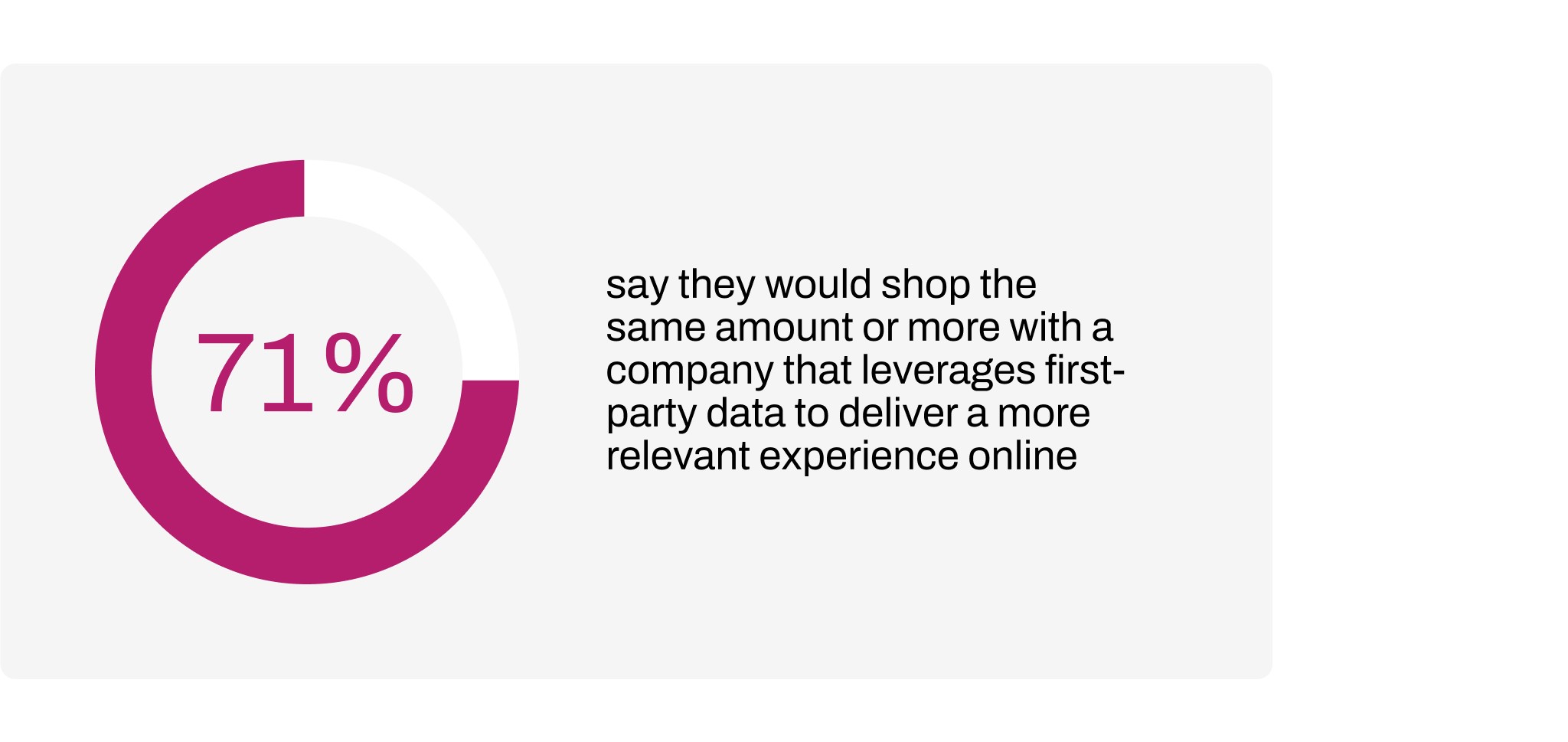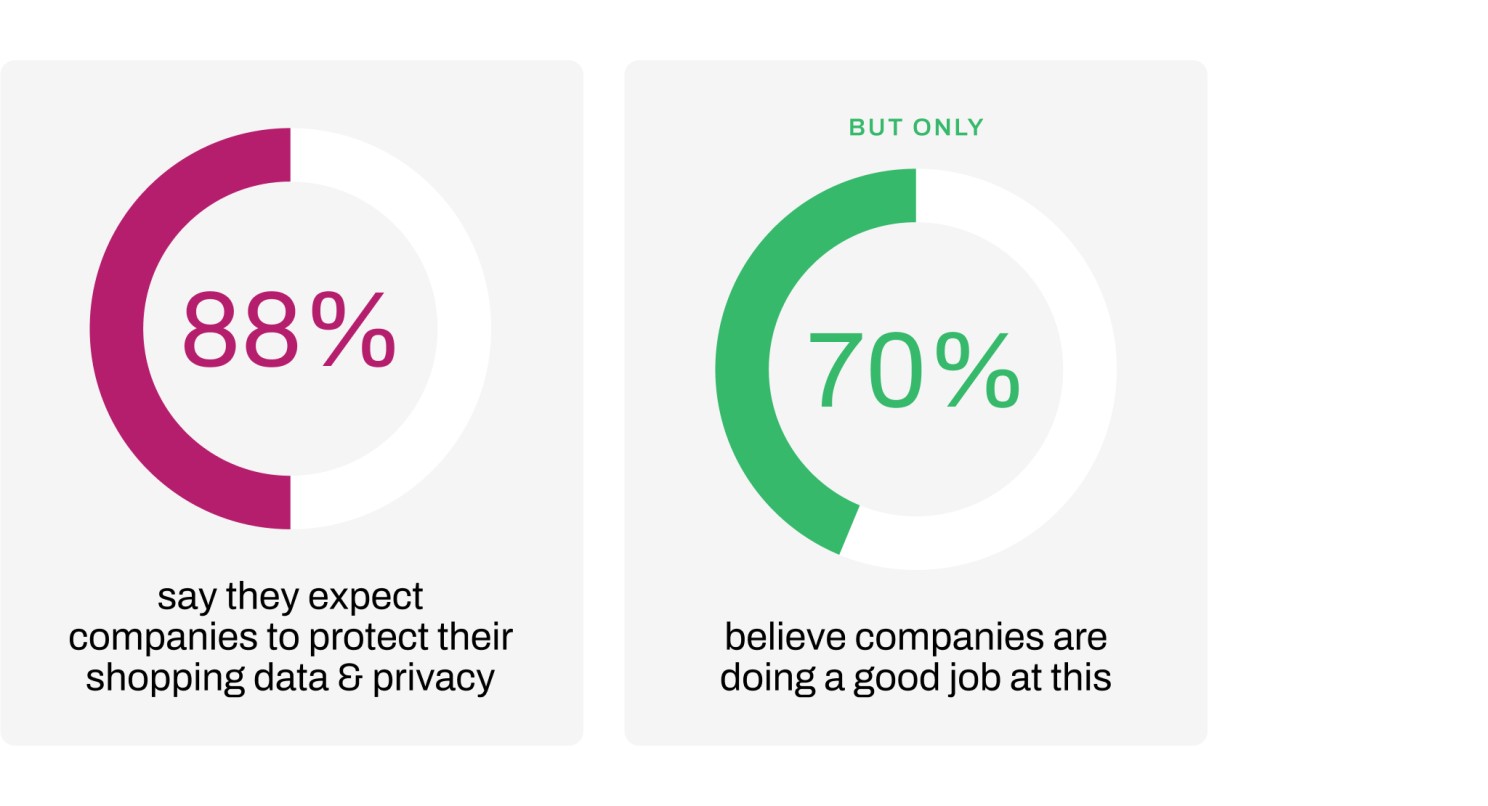Privacy and Transparency Wins in the World of First-Party Data

Today’s consumers are sophisticated and savvy. We all understand that our data is used to deliver us personalized experiences online, and many are willing to make that trade. But as the consumer becomes more sophisticated, so do their expectations for how their data is kept safe, how it is used, and more importantly — how they don’t want it to be used. This presents a unique opportunity for brands to build trust (or lose it!).
Consumers value relevant experiences, but trust is paramount
A majority of consumers are willing to exchange first-party data for tailored shopping experiences with 71% saying that they would shop the same amount or more with a company that leverages first-party data to deliver a more relevant experience online. This inclination is even higher among younger generations, with 77% of Gen Z and 81% of Millennials eager to make this trade.

In contrast, there is a heightened sense of distrust among shoppers when it comes to companies exploiting their data. Over half (57%) of shoppers would actively shop less with a company that sells their data to other companies.
Privacy in practice
In the past, brands relied heavily on social media networks to collect vast amounts of information on consumers to be used for (re)targeting. This data was tied to consumer devices through device identifiers. Shoppers are not so keen on sharing their personal data for these purposes, with three-quarters (76%) preferring that companies did not use their social media activity.
As we usher in a new world of privacy-centric advertising, brands need to build trust with consumers to the point that consumers are willing to share their data directly with the brand. What does the consumer get in return for sharing their data with your brand? An important question for any marketer.
Once they’ve built that trust with consumers, the possibilities are endless assuming brands are able to harness that information and keep it safe.
However, a discrepancy still remains between what shoppers expect and what they experience from companies regarding their personal data. Nearly 9 in 10 (88%) say they expect companies to protect their shopping data and privacy while only 70% believe that companies are actually doing a good job at protecting their privacy.

With first-party data, companies can be more precise with their optimization of the shopping journey, without sacrificing consumer trust. But how can brands close the gap between what consumers want, and what they actually experience? They are increasingly conscious of protecting their data, and their wallets will follow their trust. Utilizing first-party data can offer a distinct competitive edge in attracting and serving the modern shopper, but gone are the days of easy access to data. What are you doing to build trust with consumers?
Learn more about the importance of first-party data in today’s world of ecommerce in our report from The Harris Poll and Rokt. To learn how Rokt’s solutions can help your business reach their goals, talk to an expert here.

